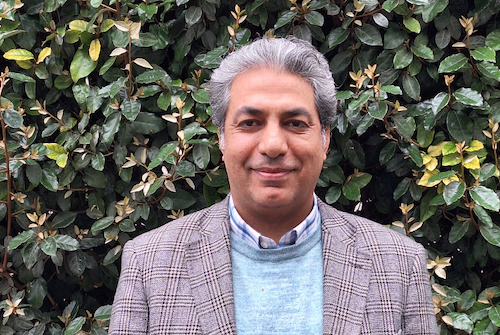
Hosein Derijani, a graduate of IFP School (Reservoir Geoscience and Engineering program, class of 2004), is returning to his alma mater as a faculty member at the Georesources and Energy Center.
1. Can you tell us more about your background?
I was born in Iran and earned a degree in Chemical Engineering from Sharif University of Technology. In 2003, I decided to continue my academic journey in France by enrolling in the Reservoir Geoscience and Engineering program at IFP School. This program has since merged with the former Petroleum Geosciences program and has undergone major content updates to address the energy transition. It is now taught under the name Subsurface Technologies for Sustainable Energies.
My professional career began in 2005 when I joined the National Iranian South Oilfield Company (NISOC) as a Reservoir Engineer. My role involved managing research projects in reservoir engineering—from identifying technical challenges to proposing them to universities and research centers and ensuring follow-up until final delivery.
I then moved to the Iranian Central Oil Fields Company (ICOFC), where I held various reservoir engineering positions. For over a decade, I worked on numerous reservoir management and field optimization projects, implementing monitoring techniques and production enhancement strategies. I was also heavily involved in field development decisions, working with multidisciplinary teams to maximize hydrocarbon recovery.
Alongside my work at ICOFC, I had the opportunity to teach reservoir engineering for a semester at the University of Tehran’s Fooman branch. My teaching focused on the fundamentals of fluid flow in porous media, as well as the theory and interpretation of well testing—providing students with a practical perspective on these critical reservoir engineering concepts.
2. What courses do you teach at IFP School, and what are your main responsibilities?
As a faculty member at IFP School, I coordinate academic activities and support students in becoming future experts in reservoir modeling and monitoring—whether for hydrocarbon recovery, gas storage, or geothermal energy. My responsibilities include:
- Organizing courses and planning case studies to ensure consistent, coherent instruction;
- Mentoring students and supporting their R&D projects;
- Collaborating with fellow faculty and researchers to integrate cutting-edge technologies into the curriculum.
I teach specialized courses in reservoir and production engineering, including:
- Reservoir modeling, including production history matching using software like Eclipse and Petrel RE;
- Well and field performance analysis and optimization using PETEX software (MBAL, Prosper, GAP).
In this context of innovations and energy transition, I also incorporate new approaches into my teaching:
Application of underground gas storage (UGS) techniques for improved resource management;
Study of hydrogen and CO₂ storage—crucial topics for energy transition and carbon footprint reduction;
Development of industry case studies to simulate the behavior of these new types of reservoirs and assess their energy performance.
3. What drew you to teaching, and what would you like to pass on to IFP School students?
Teaching allows me to share my expertise and experience with the next generation of reservoir engineers. What attracted me to this vocation was the opportunity to combine technical knowledge with a mentoring role, helping students develop critical thinking and analytical skills.
Here’s what I hope to pass on to IFP School students:
- A rigorous and innovative approach: I want students to learn how to combine traditional reservoir management techniques with new technologies and digital optimization;
- The importance of adaptability: In a constantly evolving sector, rapid learning and adaptability are key;
- Understanding the prerequisites for the energy transition: Students must deepen their knowledge of sustainable solutions such as hydrogen energy (H₂) and CO₂ capture and storage;
- Interdisciplinary collaboration: learning to work effectively with geoscientists, production engineers, and other experts to optimize reservoir performance.
Interview conducted by Meyling Siu Miranda